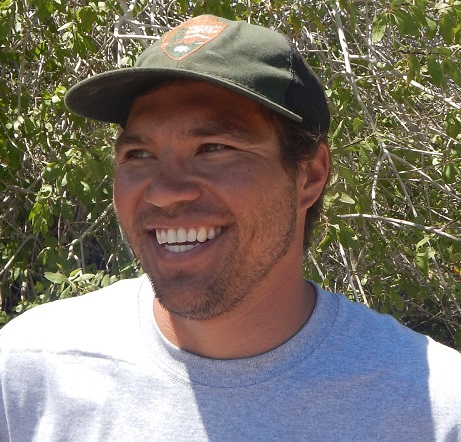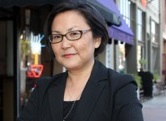Aurora Challenge Grant Recipient:David Goto

Thank you for honoring me with Aurora Challenge Grant, it is a privledge to receive such a prestigious award. I would like to also thank my family, friends and mentors for without them I would not be the person I am today and in the position to spread my love of Japanese culture.
My name is David Goto, and I have received the Aurora Challenge Grant.
I have been a California resident my whole life. Currently I am a historic preservation specialist at Manzanar National Historic Site, a unit of the National Park Service set aside by the U.S. Congress in 1992 to recognize and commemorate the Japanese American “Relocation.” I have a personal interest in this history: my family was interned. Many of my father’s relatives were imprisoned in Manzanar and then transferred to a relocation center located in Topaz, Utah, and my great uncle, Dr. James Goto, was the chief doctor at Manzanar’s hospital. For me, my work at Manzanar National Historic Site over the past 5 years is not just a job, but part of my heritage.
My name is David Goto and I work at Manzanar National Historic site located in the Owens Valley, California.
I grew up in Orange County California and the attended the University of California, Davis where I received a Bachelors Degree in Geology. Currently I am a historic preservation specialist at Manzanar, I assist in the archaeological excavation of the Japanese gardens, reset boulders that have been displaced, and patch cracked concrete. Using archival and archaeological evidence, I reconstruct missing features like bridges and decorative fences. I prune trees, remove invasive weeds, and help propagate vegetation for restoration. Using heavy machinery as well as hand tools, I contour the ground to control soil erosion.
In the receiving of the AURORA Challenge Grant, I am attending the Sendai garden workshop, to be held in the fall of 2016. In this workshop, volunteers from all over the world work together to create a Japanese garden to console and commemorate the victims of the 2011 tsunami. Sendai was one of the hardest-hit areas of Japan, with tsunami waves traveling as much as 6 miles inland. My participation under AURORA’s grant would show California’s support and care for the tsunami victims. Just as Manzanar’s prisoners built gardens to make something positive after the loss of their businesses, homes, and freedom, workshop participants will build a garden to console the victims of the tsunami who lost everything they owned during the 2011 disaster. The workshop also provides the opportunity for me to meet other gardeners, both experienced experts and novices like myself, and help me build international relationships and friendships that I expect to continue throughout my career.
|
Aurora Challenge Grant Recipient: Naomi Hirahara

My first novel in my Mas Arai mystery series took me fifteen years to write, revise and finally get published. Since then I’ve produced six books in this Edgar Award-winning series inspired by my father, a gardener and Hiroshima survivor. My series attempts to tell the story of not one man, but many like him who experienced the ravages of World War II, both in the US and Japan. The Aurora grant will allow me to research a proper ending to the series, which will be set in Hiroshima. I thank the scholarship committee and the foundation for making this all possible.
Naomi Hirahara is a Pasadena-born award-winning novelist and social historian. Her Mas Arai mystery series, featuring a California gardener and atomic-bomb survivor, has been translated into Japanese, Korean and French. A former English editor of The Rafu Shimpo, she has also received honors for her Officer Ellie Rush bicycle cop series, 1001 CRANES middle-grade book and TERMINAL ISLAND: LOST COMMUNITIES OF LOS ANGELES HARBOR (co-written with Geraldine Knatz). She will be using her Aurora grant to do research in Hiroshima for her seventh and final installment of the Mas Arai mystery series.
|